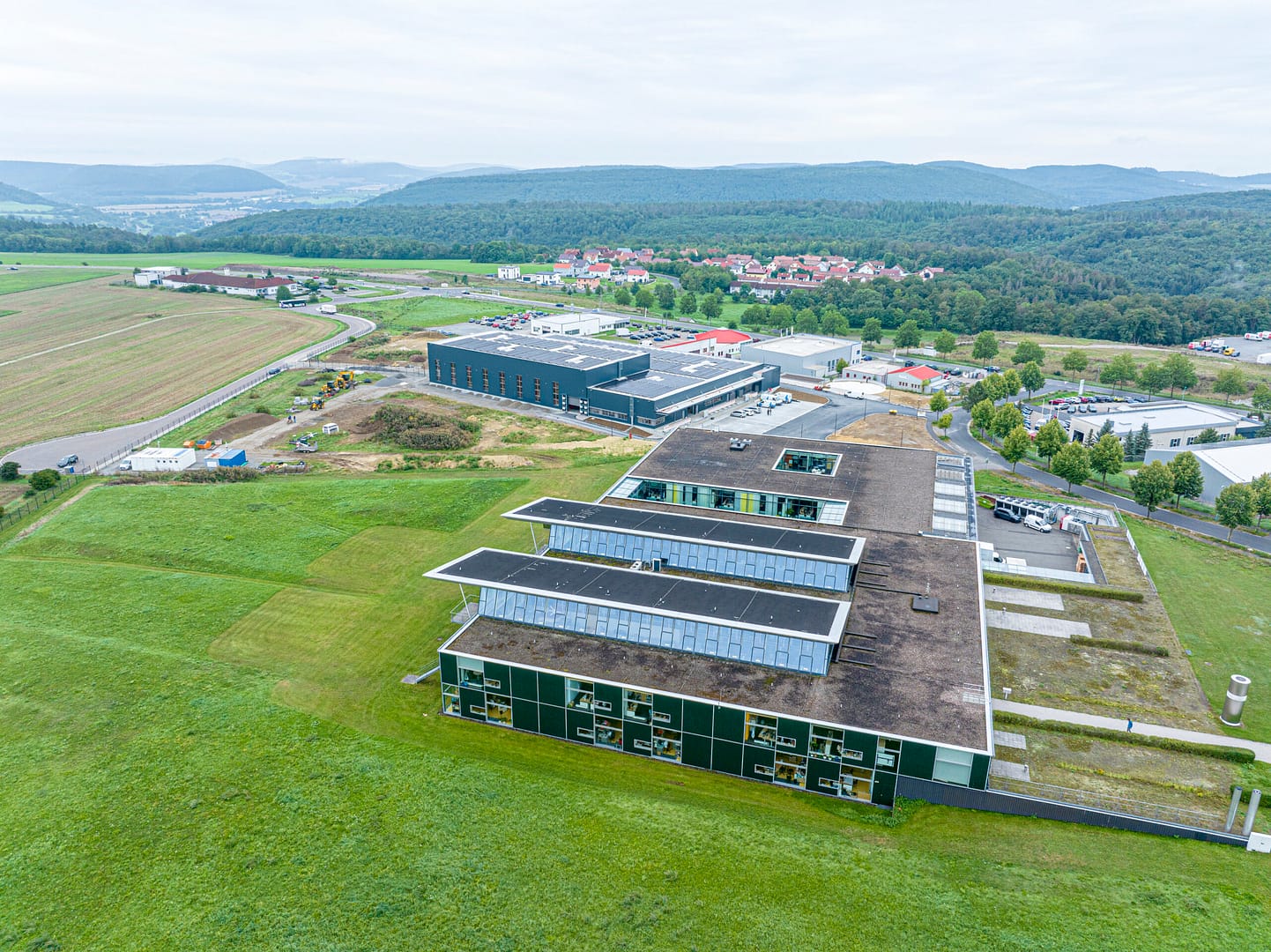
Revolutionizing Industry 4.0: Harnessing the Power of Open RAN Campus Networks for Real-Time Industrial Applications
The 6G-Terafactory project focuses on researching innovative 6G campus network technologies in practical field applications. It adopts an open-RAN approach and utilizes state-of-the-art software practices to develop a blueprint for easily setting up and reliably operating campus networks. The project emphasizes an open ecosystem approach, allowing the integration of hardware and software components from various manufacturers based on demand.
Similar to setting up a company-internal WiFi network, the project prioritizes the installation of private campus networks (NPN: Non-Public Network) for maximum flexibility in configuration and features, while maintaining ease of use. Following a “secure zero-touch operation” paradigm (SZTO), end-to-end process automation simplifies network operation, enabling companies to manage their networks without specific mobile communications expertise.
The implementation strategy focuses on ensuring security, resilience, and efficiency “by design”, protecting data exchange against espionage, sabotage, and cybercrime. Network monitoring, including the application of machine learning methods, facilitates continuous optimization and agile adaptation of security and performance parameters.
The 6G-Terafactory project aims to explore efficiency improvements in production by integrating innovative campus network technologies into real factory environments. This collaborative effort involves experts from mobile communications, network technology, robotics, and manufacturing automation. The project aligns with the vision of 6G, aiming to bridge the digital, physical, and human worlds by creating a digital twin of the factory. This digital twin will optimize workflows and enhance collaboration between employees and machines.
Key components of the project include the implementation of a campus network supporting various applications such as real-time goods tracking, optimization of goods flow through automated industrial trucks, and extended reality (XR) support for employees. Additionally, the project focuses on automated, robot-assisted assembly of customer-specific configured products, utilizing conveyor vehicles and data glasses to provide context information to human workers.
The project addresses critical network requirements for future 6G networks, including network slicing, low latency, high data throughput, spatial resolution, and low power consumption. An open 5G network serves as the foundation, adhering to 3GPP and O-RAN standards, with security and resilience as integral components.
Adtran plans to leverage the project to expand its activities beyond network operators, offering O-RAN-based campus network solutions in the EU market. Other partners, such as Gestalt Robotics and MetraLabs, aim to enhance their robotics solutions, while DFKI and Schmalkalden University of Applied Sciences focus on testing innovative concepts and training engineers in critical technological fields.
